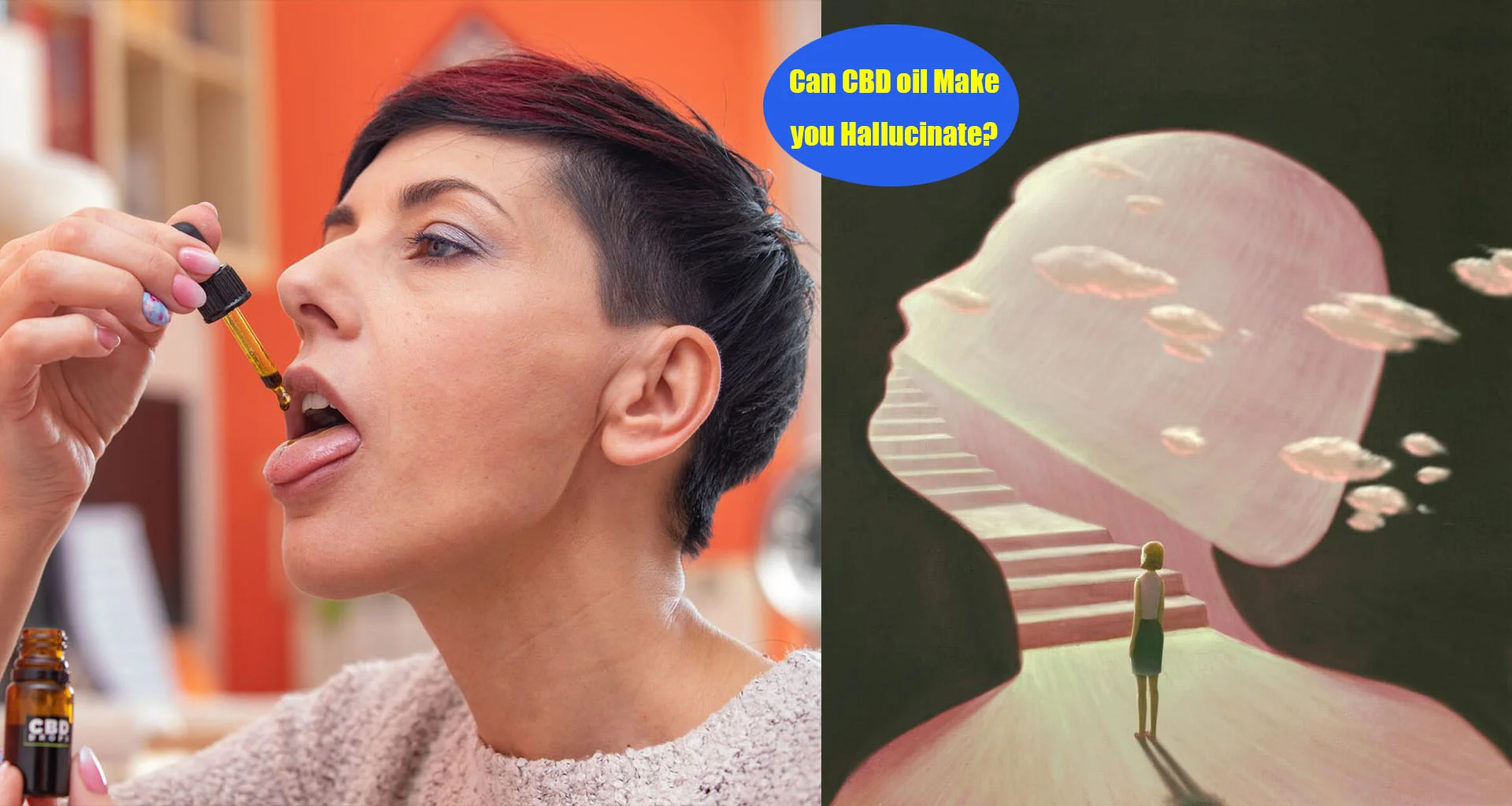Can CBD oil Make you Hallucinate?

CBD oil is a popular product for treating mild pain, alleviating anxiety, and promoting relaxation.
However, some people may wonder if CBD oil can cause hallucinations.
In this article, we take a deeper dive into cad oil and answer whether it can induce hallucinations.
What is CBD oil? What is its composition?
In a perfect world cannabidiol (CBD) oil would only contain two ingredients: CBD and a carrier oil. this is because CBD isn't water-soluble, it's fat-soluble.
CBD is one of the cannabinoids found in cannabis plant. It can be derived from two types of cannabis plants: marijuana, which has a higher amount of THC, and hemp, which has less than 0.3% of THC.
CBD carrier oils can vary widely from brand to brand, from sunflower oil to medium chain triglyceride MCT oil (usually derived from coconut oil or palm kernel oil).
The type of CBD you consume also has a significant impact on how effective it may be for you. There are three main types of CBD on the market today: CBD isolates, broad spectrum CBD, and full spectrum CBD.
Isolate products will contain chemically isolated CBD and nothing else.
Broad spectrum CBD, however, will contain additional phytonutrients found in cannabis plants such as terpenes and flavonoids.
Full spectrum CBD products contain all of these phytonutrients as well as a small amount of THC.
Does CBD oil Affect your Brain?
CBD has the potential to improve your cognitive ability, enhancing your CNS functions. But it won’t make you feel “high” the way that THC does.
We have a system called the endocannabinoid system (ECS) that consists of numerous endocannabinoids.
Endocannabinoids are receptors that bind themselves throughout the CNS, as well as the peripheral nervous system. Our endocannabinoid system is responsible for regulating the spread of cognitive and physiological processes in the body, such as memory, pain, appetite, and stress.
The cannabis plant has more than 110 cannabinoids that bind with our ECS receptors. There are two primary receptors called CB1 and CB2.
CB1 receptors are more prevalent in our CNS and regulate pain, mood, coordination, appetite, and other functions.
CB2 receptors are spread throughout our bodies and immune system. They are responsible for affecting inflammation and pain.
The various present cannabinoids attach themselves to these receptors in a lock and key fashion whenever you consume cannabis. The way they attach to these receptors varies from person to person, and hence the effects vary greatly too.
THC is known as the psychoactive element of cannabis, which binds to the CB1 receptors responsible for most of the psychoactive effects of THC.
CBD, in contrast, has a milder effect on these receptors. It binds itself to CB1 loosely, which leads to the blocking of these receptors. This helps to mitigate the psychoactive effects of THC.
What can make you hallucinate?
Various factors can induce hallucinations, including the usage of psychoactive substances or psychedelic, sleep deprivation, sensory deprivation, or certain medical or psychological conditions.
Can CBD oil Make you Hallucinate?
There are several potential benefits of using CBD oil, including reducing pain and inflammation, and potentially alleviating anxiety and depression.
While there have been a few reported cases of hallucinations related to CBD oil, there is no scientific evidence to suggest that CBD itself can cause hallucinations.
THC is a psychoactive drug in cannabis plant, which is why it can cause this. It's more common to happen to people who are mentally ill.
CBD is non-psychotropic. This means it does not have narcotic qualities. Even though you may feel different on it, it is not in the same way you would after taking THC. Taking CBD oil should not really alter reality at all, let alone cause hallucinogenic effects.
In most cases, the hallucinogens generally occur when you ingest too much of the CBD oil and get too much THC in your system at once.
Sometimes, as the CBD industry remains unregulated, the label may not even accurately reflect the product’s ingredients.
So there are many low quality CBD oils on the market may not even contain the amount of CBD advertised on the label, or even worse, they may contains significant amounts of THC, which far exceeds the the legal content of 0.3%.
When large quantities of CBD oil in this form are used consistently, patients can unknowingly consume high doses of THC concurrently, causing you experience hallucinations.
To minimise the risk of hallucinations or side effects, you should start with low doses (approximately 5-10 mg), opt for broad spectrum or THC-free Isolate products.
The Isolate and Broad-spectrum CBD oil produced in a laboratory is far less likely to cause hallucinations than a Full spectrum CBD oil which has been extracted from a hemp plant. They should contain zero THC.
Conclusion
Generally, CBD oil does not get you high or hallucinate. Because the CBD is a non-psychoactive component of cannabis.
However, many CBD oils on the market may contain excessive amounts of THC than indicated on the label and have the potential to get you high or hallucinate.
So, excessive doses of CBD oil are generally not recommended, and we suggest you get a brand that is independently third-party tested.
Overall, With proper dosing and careful purchasing, you can reap the benefits of the CBD oil without this uncomfortable and unwanted effect.
